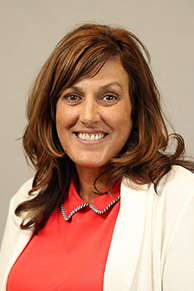Speaker information
Glenda Walsh
Dr Glenda Walsh is an international expert in the field of play and playful pedagogies in early years and primary education, and a significant contributor to curriculum development in Northern Ireland (NI) and beyond. She is Head of Early Years Education at Stranmillis University College and Assistant Director of the Centre for Research in Educational Underachievement. She has undertaken many major research projects such as the longitudinal evaluation of the Early Years Enriched Curriculum Project in NI that informed the revised NI Primary Curriculum and an international study in Republic of Ireland examining pedagogy in Early Childhood Education. Most of Glenda’s work has a strong applied focus, where she works closely with early years settings, schools and government bodies devising and disseminating models of good practice within early years education as well as delivering an extensive programme of professional development for teachers in NI and beyond. She has authored several publications, including acting as lead-editor of Playful Teaching and Learning (SAGE, 2017), which reflect her interest in Early Years Education, focusing in particular on resolving the dilemmas associated with play as learning and teaching in practice to enable a high quality learning experience for all young learners.
Speaker presentations
Date: 11.11
Time:
12:00 – 13:00
Nur-Sultan time
Keynote speech
It’s more than ‘just play’: infusing playfulness into the teaching and learning experience in early years settings
The importance of play and its associated benefits for young children’s learning and development have long been recognised (Whitebread, Basilio, Kuvalja & Verma, 2012; Zosh et al., 2017). Yet, against this backdrop of policy and research activity, there is a picture of play in practice that is highly controversial and problematic, where despite the value EC practitioners attribute to play, they often appear confused about their role in play and some still do not fully understand learning through play (Sproule et al, 2021). Such findings therefore signal a warning that simply providing more play-based activities in practice does not necessarily promote children’s cognitive and metacognitive processes (Walsh et al, 2017). In this way, the essence of a high quality learning experience for young children is more than ‘just play’ (Sproule et al, 2019). It is within the context of this presentation that an innovative, early years pedagogy which moves beyond the boundaries of playing, learning and teaching as separate entities will be unpacked. Rather than play being perceived as a mere activity, it is argued that the infusion of playfulness becomes the central tenet in the teaching and learning experience, enabling young children to be autonomous, creative and genuinely interested in their learning while ensuring genuine progression in children’s cognitive skills and content knowledge.

